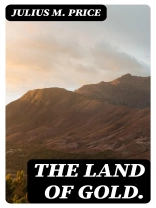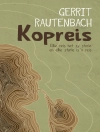Julius M. Price’s ‘The Land of Gold’ is a compelling narrative that delves into the intricate dynamics of power, wealth, and morality in a society obsessed with material gain. Written in a captivating and vivid style, Price’s work immerses the reader in a world where greed and ambition collide with ethics and human values. The book’s astute observations on human nature and the pursuit of riches make it a thought-provoking read that resonates with readers of all backgrounds. Set against the backdrop of a wealthy and opulent society, ‘The Land of Gold’ offers a poignant commentary on the relentless quest for wealth and its consequences on individuals and society as a whole. Julius M. Price, a seasoned writer known for his insightful storytelling and keen observations of societal issues, draws on his vast experience in economics and philosophy to craft a narrative that challenges and enlightens readers. His unique perspective and deep understanding of human behavior shine through in ‘The Land of Gold, ‘ making it a compelling and thought-provoking read. For readers seeking a profound exploration of the complexities of human nature and the pursuit of wealth, Julius M. Price’s ‘The Land of Gold’ is a must-read. With its engaging narrative and insightful commentary, this book offers a captivating journey into the heart of a society consumed by the allure of gold.
Sobre o autor
Julius M. Price was a discerning traveler and an accomplished writer from the Victorian era, known for his articulate prose and keen observation skills. Primarily recognized for his travel literature, Price embarked on adventures that took him across various continents, allowing him to document and share his experiences with an audience eager for tales of remote destinations. His notable work ‘The Land of Gold’ stands as a testament to his journey through the Klondike during the Gold Rush era. In this book, Price meticulously details the harsh conditions, the relentless pursuit of fortune by prospectors, and the stunning landscapes of the Canadian Yukon. The book not only captivates with vivid descriptions but also offers insights into human nature when faced with the trials of frontier life. Price’s literary style weaves narrative with commentary, often reflecting on the socio-economic implications of such gold rushes and their impact on indigenous populations and environments alike. While his bibliographic details remain relatively obscure, and less is known about his personal life compared to other authors of the era, Price’s work contributes to the rich tapestry of 19th-century travel literature and continues to be of interest to historians and enthusiasts of the period.












